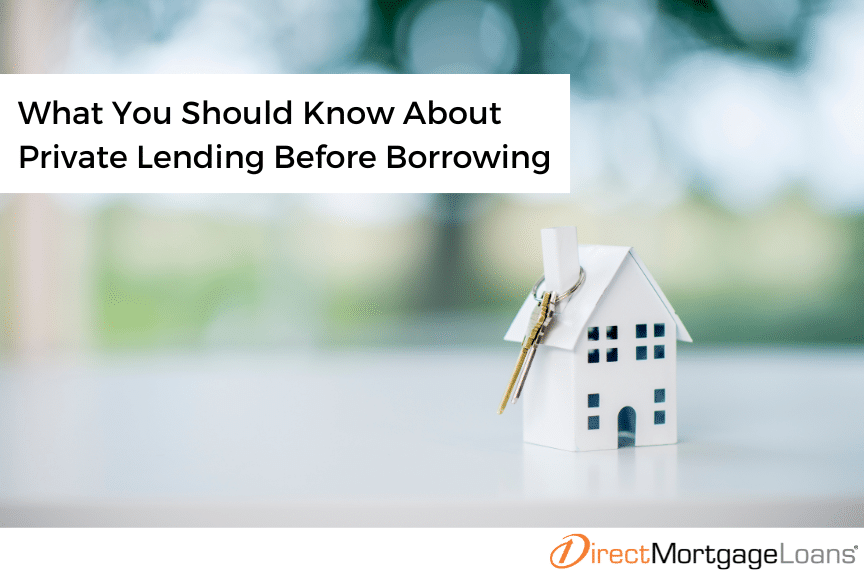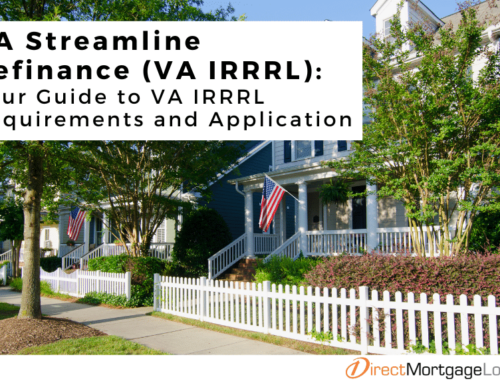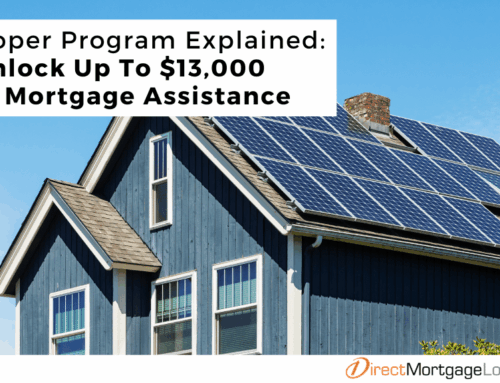What is a private mortgage loan?
Securing a traditional mortgage usually involves getting a loan from a bank or established lender. A private mortgage loan, on the other hand, offer a different financing option through a direct loan agreement between a mortgage borrower and a private individual or company. Unlike traditional mortgages, private mortgages come with terms and requirements tailored by the private lender.
This flexibility in terms and qualifications can be appealing to borrowers who may not qualify for a regular mortgage due to factors like credit score, down payment size, or unique income situations. However, it’s important to note that the flexibility offered by private mortgages also comes with increased risks for both the borrower and the lender. We will discuss these risks in more detail later.
Subscribe to our blog to receive notifications of posts that interest you!
What is a private mortgage lender?
A private mortgage lender establishes its own guidelines and loan terms and does not adhere to the same criteria and requirements as traditional banks and mortgage lenders. Additionally, a private mortgage may involve a non-arm’s length transaction, where the borrower has a personal relationship with the lender. For instance, if you are buying a home from a family member, they may offer you a private mortgage with easier approval and more flexible repayment options.
Differences Between A Private Lending and Direct Lender Loans
While both private lenders and direct lenders offer financing to purchase a home, they differ in their approach and the types of loans they specialize in. Understanding these differences can help you make an informed decision about which option best suits your needs.
Private Lender Loans
Private lenders are individuals or companies that offer loans using their own money or funds from investors. They work independently from traditional banks, giving them more flexibility in the types of loans they offer and the borrower qualifications they require. However, because they take on more risk by lending to individuals who may not qualify for traditional loans, they usually charge higher mortgage interest rates.
Direct Lenders Loans
Direct lenders are established financial institutions which originate and manage loans themselves. They offer a variety of loan products with standardized terms and qualification requirements. These lenders are also subject to regulations to ensure consumer protection and fair lending practices, providing an added layer of security.
Private Home Loan Pros and Cons for Borrowers
If you’re considering a private home loan, it’s important to fully understand the pros and cons before deciding if this option is right for you. Here’s a breakdown to help you decide.
Pros of Private Mortgages for Borrowers
- Easier Qualification: Private lenders may be more lenient with credit score requirements and down payment amounts.
- Faster Approval: Private mortgages often have a simpler application process compared to traditional loans, potentially leading to quicker closing times.
- Potential for Negotiation: With private lenders, there’s often room to negotiate terms, this could mean a flexible repayment schedule or waived fees.
Cons of Private Mortgages for Borrowers
- Higher Interest Rates: Private lenders typically charge more interest to compensate for the increased risk they take on by lending to borrowers who might not qualify for traditional mortgages.
- Fewer Protections: Traditional lenders are subject to strict regulations designed to safeguard borrowers from taking on excessive debt. Private lenders may not be bound by the same rules, leaving you more vulnerable to financial strain if the loan terms aren’t a perfect fit for your situation.
- Shorter Loan Terms: Unlike traditional 15 or 30 year fixed mortgages, private mortgages often come with shorter repayment periods. This could translate to higher monthly payments.
Pros and Cons Of Private Mortgages For Lenders
Considering private mortgage lending? This approach offers several advantages for investors with available capital, but it’s crucial to understand the potential drawbacks before getting started. Consulting with a financial professional or real estate attorney is highly recommended before extending any loans.
Pros of Private Mortgage Loans for Lenders
- Earning Potential: Private mortgage loans could allow you to earn profitable returns on your investment, as interest rates on private loans are typically higher than those offered by traditional lenders.
- Steady Cash Flow: The borrower’s regular mortgage payments generate a predictable and consistent cash flow for you as the lender.
- Security of Investment: Private mortgages are secured by the property itself. In the event of a borrower’s default, you could have the legal right to foreclose on the property to recoup your loan amount.
Cons of Private Mortgage Loans for Lenders
- Higher Risk: Traditional lenders have strict guidelines to protect themselves. As a private lender, you’ll need to do more legwork to assess the borrower and property to avoid risky loans.
- Limited Diversification: Investing in private mortgages often means putting a lot of money into a single loan. This can make it hard to spread your investment across different real estate opportunities.
- Management Burden: When you lend money privately, you are responsible for managing the loan. This means you will need to collect payments, handle late payments, and may even have to take legal action if the borrower can’t make their payments.
How do private mortgages work?
While the specifics of a private mortgage can vary depending on your situation, here’s a breakdown of the general process:
Find A Private Lender
The search for a private lender can begin within your network. Look for potential lenders among friends, family, or business associates who might be interested in an investment opportunity. Real estate agents often have connections to private lenders specializing in financing properties. Online resources could also be used, but remember to thoroughly research the lender’s reputation and experience before proceeding.
Negotiate Terms
Since private mortgages don’t have set rates and terms like traditional lenders, you could negotiate terms with the lender. This could include negotiating the interest rate, loan amount, and repayment plan.
Speak With A Real Estate Professional
Connect with a real estate attorney to assist you in navigating the private mortgage process. They can help you understand the terms, identify any red flags, and ensure all the proper paperwork and processes are completed correctly to ensure the transaction is equally beneficial for both parties.
Gather Your Paperwork
Ensure you have all the necessary paperwork to make the transaction legal and binding, including:
Promissory Note
This legal document outlines the terms of the loan, including the amount borrowed, interest rate, repayment schedule, and penalties of default.
Deed of Trust
This document secures the lender’s interest in the property. In case of default, the lender could potentially foreclose on the property to recoup their investment.
Are private mortgages a good idea?
Private mortgages may seem appealing to individuals who are having difficulty qualifying for a traditional loan. However, they carry significant risks. The lenient requirements usually mean higher interest rates, which could end up costing you more over the term of the loan compared to a conventional or government-backed loans.
Other Options Besides A Private Mortgage Loan
If you’re having trouble getting a loan from a traditional lender because of a low down payment, credit score, or employment situation, you might think that a private mortgage is your only option. However, there are other choices available!
For example, down payment assistance programs could provide financial aid to first time homebuyers or those with lower to moderate incomes to help cover upfront costs when buying a home. There are also zero down mortgage loans like 100% FHA Financing, USDA, and VA loans that don’t require a down payment. Additionally, individuals with unconventional income or who are self-employed could explore Non-QM Loans.
Private Mortgage Loan FAQ’s
What are the disadvantages of a private mortgage?
If you are considering a private mortgage, there are several important factors to keep in mind. Private mortgages usually come with higher interest rates compared to traditional loans since private lenders take on more risk. Moreover, loans from banks or direct lenders are usually backed by federal regulations which provide protection for borrowers, whereas private loans may not offer the same level of security. It’s also important to consider your personal relationship with the private lender; if the lender is a friend or family member, financial disagreements could strain personal relationships.
Why would you get a private home loan?
A borrower may consider a private home loan if they’re having difficulty qualifying for a traditional mortgage due to challenges like a low credit score or income that’s difficult to verify with standard documentation. Private lenders may have more flexible requirements in these cases. Another possibility is using a private loan to facilitate a home purchase between close friends or relatives, which can be appealing if both parties are comfortable with the arrangement.
Are private mortgages risky?
Compared to traditional mortgages from banks or direct lenders, private mortgages could be riskier. This is because traditional mortgages are subject to heavy regulations designed to protect both borrowers and lenders.
These regulations ensure that lenders follow specific lending practices to assess a borrower’s ability to repay the loan. Private lenders, on the other hand, may operate with less regulation, which could potentially mean less favorable terms for the borrower, making it overall riskier.
What happens if I default on a private mortgage?
If you fail to make payments on a private mortgage, you risk foreclosure on your home. This means the private lender could take legal action to sell your home and recover their losses. With a private lender, the foreclosure process might happen faster compared to a traditional lender.
Can I refinance a private mortgage loan?
Yes, it is possible to refinance a private mortgage loan into a traditional mortgage. The process is like a standard refinance, but it involves a few additional requirements. In addition to the usual documentation to verifying your financial status, you will need a Verification of Mortgage (VOM) from the private lender holding your current loan.
This document should provide details about your mortgage, including the current balance and your payment history. Furthermore, you will also need to provide the deed of trust and tax bill for the property you are refinancing and meet the eligibility requirements for the new mortgage you are applying for.
*By refinancing your existing loan, total finance charges may be higher over the life of your loan. Eligibility and approval is subject to completion of an application and verification of home ownership, occupancy, title, income, employment, credit, home value, collateral and underwriting requirements. Direct Mortgage Loans, LLC is licensed in Maryland. Direct Mortgage Loans, LLC NMLS ID# is 832799 (www.nmlsconsumeraccess.com). Direct Mortgage Loans, LLC office is located at 11011 McCormick Rd Ste 400, Hunt Valley, MD 21031.







Leave A Comment
You must be logged in to post a comment.